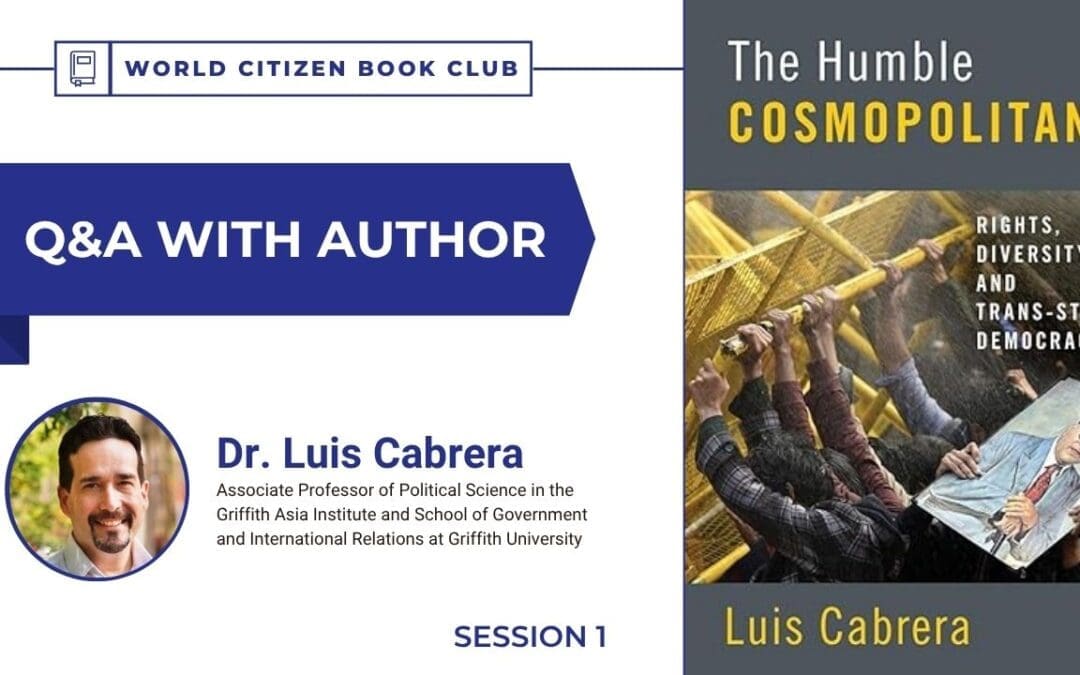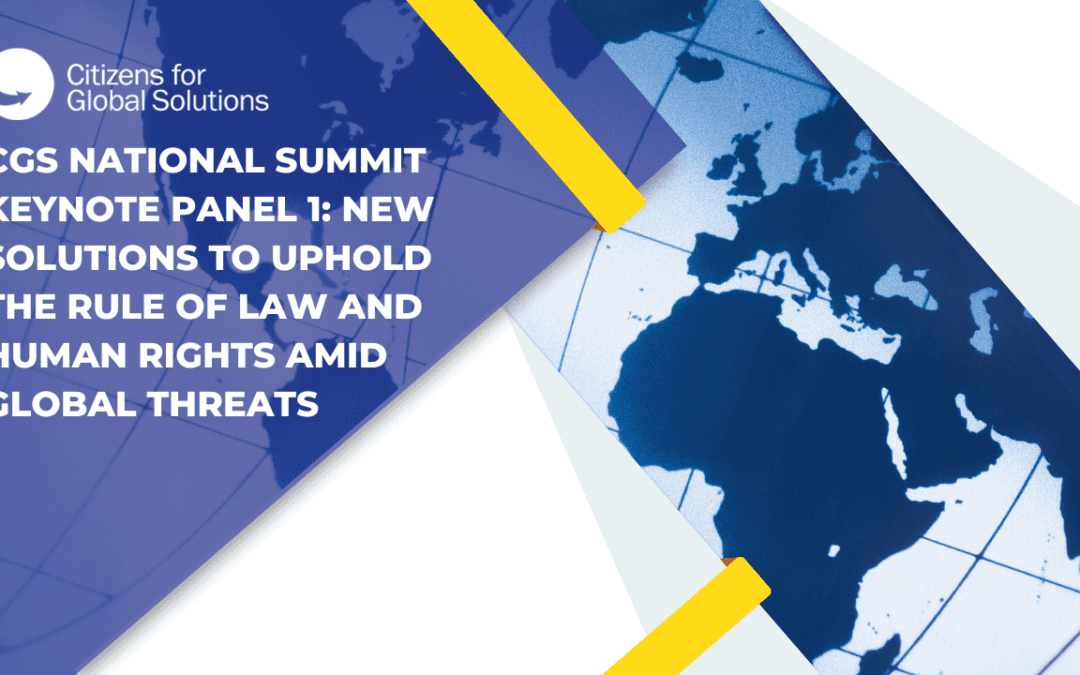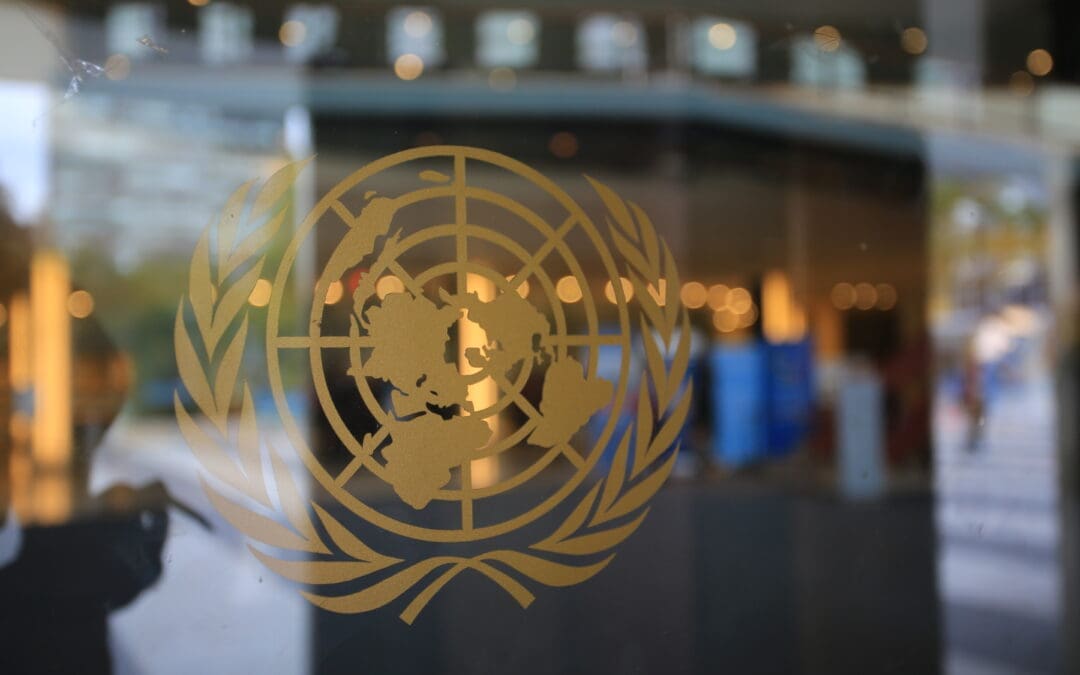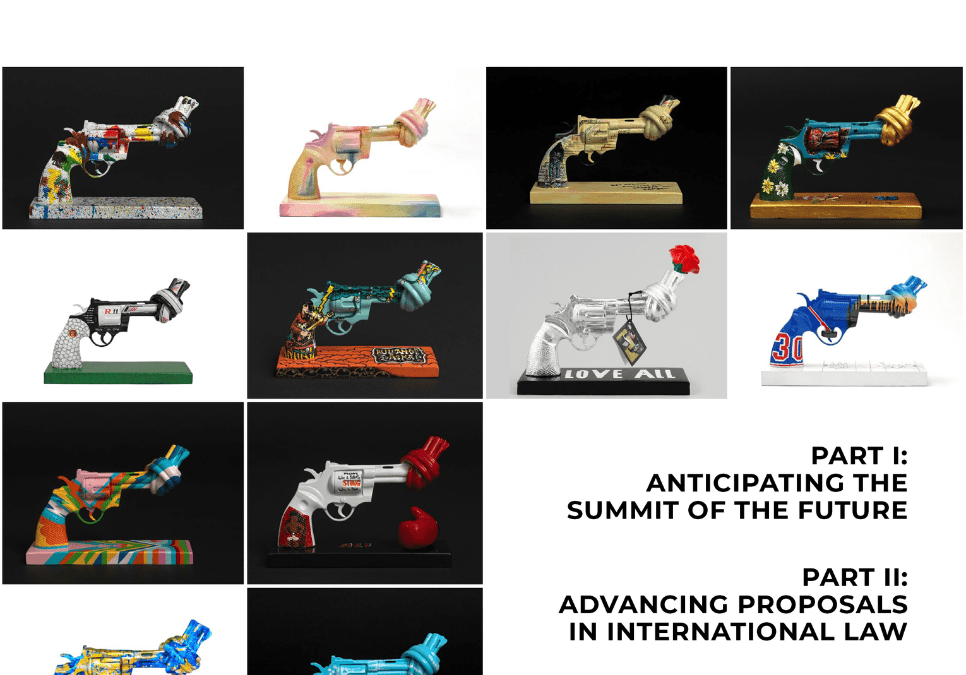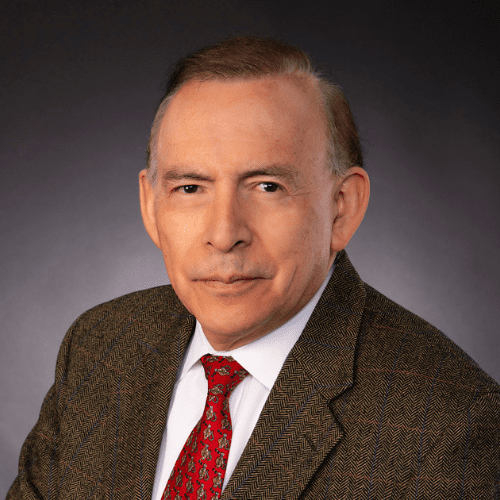
by Citizens for Global Solutions | Jul 23, 2025 | Past Event
About the Book
The Humble Cosmopolitan explores how an “institutional global citizenship” approach to cosmopolitanism could promote political humility globally. It draws on the work of Indian constitutional architect and social activist B.R. Ambedkar to challenge the notion that sovereign states are empowered to dismiss rights-based challenges from outsiders or their own populations—even as they serve as the designated guarantors of human rights.
About the Author
Luis Cabrera is Associate Professor in the School of Government and International Relations and Griffith Asia Institute at Griffith University in Brisbane, Australia. He has published widely on issues of global justice and ethics, including global citizenship, migration and individual rights, and on the development of more democratically accountable regional and global political institutions. He has conducted related field research in India, Mexico, Southeast Asia, several European Union countries, Turkey, and the United States.

by Citizens for Global Solutions | May 16, 2025 | Past Event
During this high-level, live-streamed public panel at the 2025 National Summit, Citizens for Global Solutions (CGS) partners came together to highlight their efforts in driving action during turbulent times. They showcased innovative approaches to addressing escalating global threats and shared how their collaboration with CGS strengthens these initiatives. The panel also offered valuable insights into the evolving landscape of global governance—exploring both the pressing challenges and emerging opportunities ahead.
Moderator: Alyn Ware, Program Director, WFM-IGP; Co-Founder, Legal Alternatives to War (LAW not War)
Speakers:
- Yasmina Gourchane, Advocacy Officer, Coalition for the International Criminal Court (CICC)
- Tess Graham, Legal Advisor, Global Justice Center
- Saul Kenny, Communication Advisor at the UN Charter Reform Coalition
- Alexandre MacIsaac, Executive Director, WFM-Canada
- Dan Perell, Representative to the United Nations, Baha’i International Community
- Karam Singh, Deputy Director, Integrity Initiatives International (III)

by Citizens for Global Solutions | Apr 3, 2025 | United Nations
Sixteen years after the fateful day the United Nations (U.N.) charter was promulgated in San Francisco, President John F. Kennedy memorably intoned on a return to that city that the U.N. “remains mankind’s best hope to conquer war, poverty, and disease.” Across subsequent decades this aspiration has been shared by U.S. presidents from Reagan, who believed that U.N. could help “bring about a new day,” to George H.W. Bush, who recognized the U.N. system as “poised to historic vision of its founders—a world in which nations recognize the shared responsibility for freedom and justice.” Today, the U.S. posture seems to reduce the U.N. and its various agencies and departments to poker chips or lots at auction.
The late President Carter emphasized that “[t]he United Nations is the best available institution to support the values and aspirations that the United States shares with other peace-loving nations.” Of course, “best available” does not mean unflawed. The U.N. is a human-made institution and, therefore, fallible. It is incumbent on all those who support effective global governance, human rights, and the rule of law to underscore areas for improvement, while adapting to new polycrises and fresh challenges.
None of this is easy. But, as the leader of an organization that has supported the U.N. project almost since its inception, I am proud that our members have championed reform efforts while hewing to the vision that guided the U.N.’s founding.
What is easier is to reduce the U.N. to a stock to be traded, a poker chip to be gambled, or a lot to be auctioned to the highest bidder. The current U.S. administration uses its time in the General Assembly Hall to disavow goals related to sustainable development, withdraw from human rights commitments, and oppose such basic principles as “peaceful cooperation” and “judicial well-being.” Alarmingly, pundits have jumped on the bandwagon to reduce the project of humankind to a bad real estate deal.
This year, the U.N. will commemorate its 80th anniversary—slightly ahead of the average U.S. life expectancy projected for 2025 of 79.4 years. Anyone who has visited the Geneva premises lately, where an ongoing liquidity crisis has occasioned desperate measures, like heating cuts, has reason to fear for this octogenarian’s health.
Perhaps the venal attitude is best typified by an opportunistic “independent, non-affiliated initiative,” DOGE-UN, which claims to be a “non-profit organization incorporated in New York State.” According to its website, “It analyzes each institution and the broader geopolitical marketplace on whether to ‘hold, buy or sell’ their stakes in international organizations.” The outfit is indeed incorporated in New York as a business. It is not listed on the New York State Attorney General’s Office public registry of charitable and non-profit organizations. Research indicates it is not affiliated with the federal Department of Government Efficiency (DOGE).
Whatever the tax status of this start-up, the approach it advances of “hold, buy, or sell” fails to recognize that global cooperation is not a zero-sum game. Viruses do not carry passports. Climate disasters do not wait behind velvet ropes. Nuclear reactors are not impressed by border demarcations.
Finally, if altruism fails to inspire global cooperation, perhaps self-interest can. “America first” style critics of the U.N. frequently fail to note that the United States is the largest recipient of U.N. contracts – far outstripping our dues. In the words of Peter Yeo, President of the Better World Campaign, “U.S. companies do well and do good by taking part in the U.N.’s lifesaving work.”
On the U.N.’s Oak anniversary, we must not take its strength and endurance for granted. Please consider making your voice heard by contacting your legislators and urging support for the U.N. and its agencies.
As you do, you may remind them that what transpired in San Francisco 80 years ago was not a poker game but a promise to humankind and our planet.
